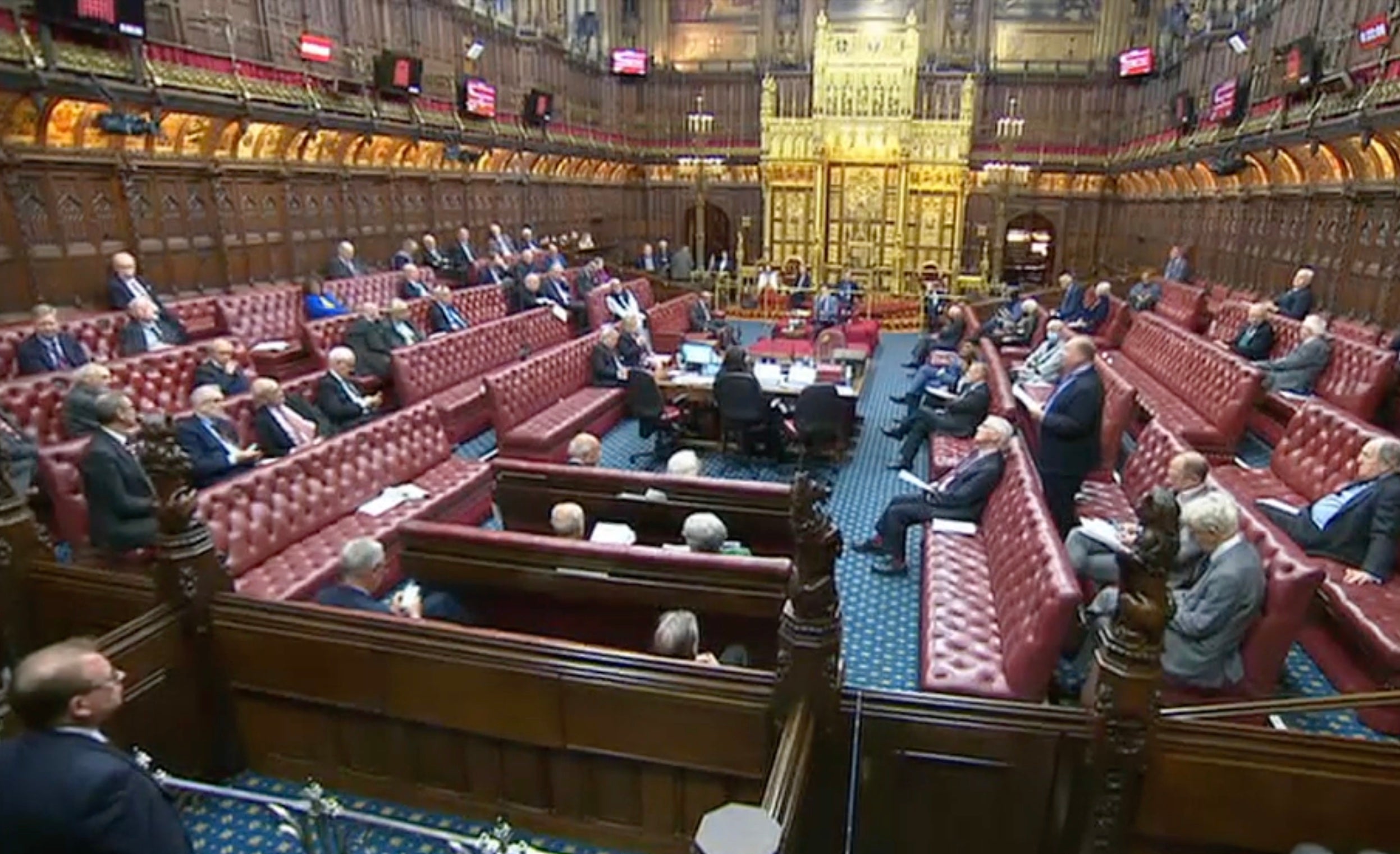Electoral Commission ‘concerned’ after Tories vote to place it under government control
Ministers will now be able to direct the election watchdog’s priorities and control the committee that scrutinises it

The Electoral Commission has said it is “concerned” about its future independence after the government passed a new law to put it under ministerial control.
The changes included in the Elections Bill, which finally passed the House of Lords on Wednesday night, will hand the government sweeping powers to direct the election watchdog’s priorities.
Opponents say the changes endanger free and fair elections and amount to an “authoritarian power grab” that will let ministers shape how electoral law applies to their own party and to political opponents.
Under the bill, which was passed by peers by 202 votes to 181, a secretary of state will be able to issue unilaterally a “statement of purpose” that directs the commission’s priorities.
The bill will also automatically add a government minister to the committee that oversees and scrutinises the work of the commission – entrenching a Tory majority.
The law had been defeated by peers on Monday but was sent back to the upper house again two days later, in a move that sources in the House of Lords say caught opposition parties off guard.
Just 67 Labour peers turned out to vote against the measure, 70 Liberal Democrats, 33 cross-benchers, and three rebel Conservatives. The House of Lords has 767 members and an inbuilt opposition majority, but many peers do not turn up to vote on all occasions.
Opposition parties were surprised by how many Tories turned up on Wednesday, and were unable to stop the bill despite having done so two days earlier.
Responding to the vote, a spokesperson for the Electoral Commission said: “As the political finance regulator and the body which oversees free and fair elections, the way we work and our decisions must remain independent. This underpins fairness and trust in the electoral system, as well as public and cross-party confidence in the commission.
“We remain concerned about the potential impact of this measure, and look to the formal consultation on the government’s proposed statement once that is available.
“All parties have stated during the parliamentary consideration of the Elections Bill that the independence of the Electoral Commission is vital to the functioning of a healthy democracy. The commission will continue to act in an independent and impartial way in order to help maintain public confidence in elections across the UK.”
The bill also introduces a requirement for voter ID at elections, which critics say will make it disproportionately harder for demographics that favour opposition parties to vote, thereby suppressing turnout.
Kyle Taylor, director of campaign group Fair Vote UK, said that the government had essentially “voted to officially end the independence of the Electoral Commission” and that the new powers mean ministers “can effectively rig election rules in their favour”.
“This is how countries slide into authoritarianism,” he added. “First you take control of the institutions, then you rig them in your favour and ban noisy protest so people can’t fight back. It’s a dark day for democracy.”
Naomi Smith, chief executive of campaign group Best for Britain, said: “Last night was the last chance to protect the independence of the elections watchdog, and with it free and fair elections in the UK.
“Despite the enormous efforts of a cross-party, cross-organisational resistance to the government’s authoritarian power grab, tonight Johnson’s regime succeeded in its latest pursuit to dodge accountability.
“There is now an urgent need to remove this government and undo the damage they have wrought on our institutions and public trust in politics. Opposition parties must work together to make this a reality.”
Alex Norris, Labour’s shadow minister for levelling up and elections, told The Independent the move was “outrageous”.
“Just as with Owen Paterson, and with their attempts to prevent the prime minister being investigated for lying about breaking lockdown rules, the Tories are trying to rig the rules of the game to help themselves, with potentially dangerous consequences,” he said.
Liberal Democrat home affairs spokesperson Alistair Carmichael added that “any threat to the independence of the Electoral Commission” was “an existential threat to democracy in the UK”. He said: “We cannot allow Boris Johnson to rewrite the rulebook in order to prop up his failing government.”
Conservative Cabinet Office minister Lord True told peers on Wednesday night that the bill was “necessary” and took “a reasonable approach to reforming the accountability of the Electoral Commission whilst respecting their operational independence”.
He added that the changes “will not allow the government to direct the commission’s decision-making, nor will it undermine the commission’s other statutory duties”.
The minister said the government would accept minor amendments restricting the content of the “statement of purpose” and increasing parliamentary scrutiny – but opposition peers said this only amounted to a minor tweak.
Cross-bench peer Lord Judge, a former head of the judiciary, said the bill’s provisions were “inconsistent with the need for the commission to be, and to be seen to be, independent of the government and indeed all political parties”.
Lord Blunkett, a former Labour home secretary, said: “This is so fundamental to the way in which we conduct our democracy, our election processes, and therefore the transparency and trust that people should expect ... it will come home to bite them, I promise them.”






Join our commenting forum
Join thought-provoking conversations, follow other Independent readers and see their replies
Comments